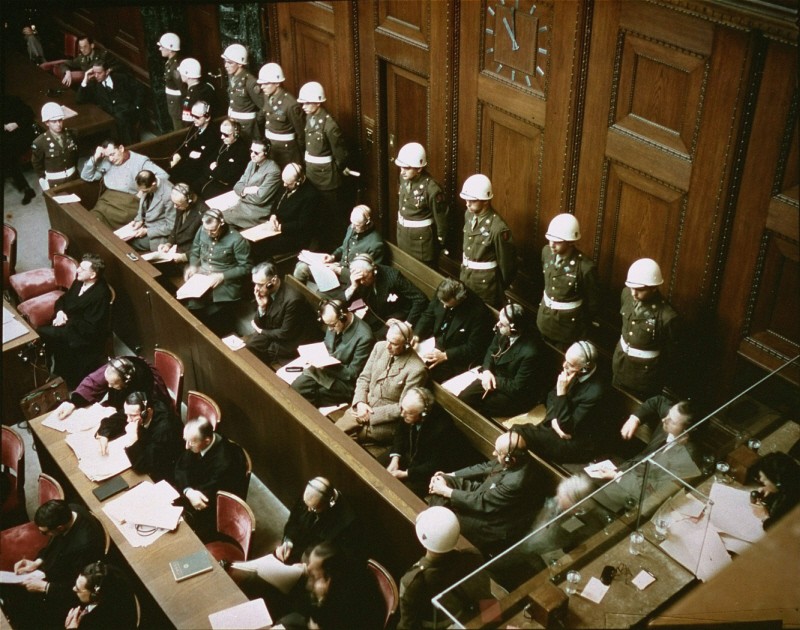
Joachim von Ribbentrop
In the immediate aftermath of the Holocaust, the world was faced with a challenge—how to hold individually accountable those German leaders who were responsible for the commission of monstrous crimes against humanity and international peace. The International Military Tribunal (IMT) held in Nuremberg, Germany, attempted to face this immense challenge. On October 18, 1945, the chief prosecutors of the IMT brought charges against 24 leading German officials, among them Joachim von Ribbentrop.
Joachim von Ribbentrop (1893–1946) was Foreign Minister of Germany (1938–1945). He played the key role in negotiating the German-Soviet nonaggression pact that made possible the German invasion of Poland in September 1939. He also directed diplomatic efforts to persuade Germany's Axis partners to deport their Jews to German killing centers and to abandon their Jewish citizens living in Germany to the deportations.
At the International Military Tribunal, Ribbentrop was found guilty on all four counts (conspiracy, crimes against peace, war crimes, and crimes against humanity). He was sentenced to death and was hanged on October 16, 1946.
Critical Thinking Questions
- Explore how challenges to ethical behavior and leadership played out in the context of the Holocaust. How do these challenges confront us today?
- How were various professions involved in implementing Nazi policies and ideology? Who was brought to trial after the Holocaust?
- What pressures and motivations may have affected von Ribbentrop's choices before and during the war?
- Beyond the verdicts, what impact can trials have?

